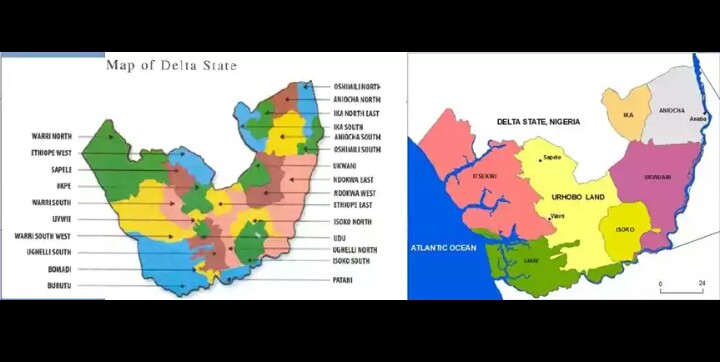Education
10 Interesting Facts About Delta State.
Delta State is located in Southern Nigeria and it is one of the Niger Delta states. It is an oil producing state with one of the highest production output in the country. It is also one of the richest states in Nigeria. However, there are many misconceptions about Delta State, especially to those who are not from the Niger Delta or South-South. As a Deltan who was born in Delta State, travelled almost everywhere in the state and has lived a large chunk of my life in the state, I believe I am in a good position to state some exciting facts about Delta State!!!
1. Delta State was created 25 years ago by the military regime of IBB (Ibrahim Babangida) due to the clamour by the people of the then Delta Province and the Anioma people. However, the Anioma people didn’t envisage being included in Delta State because they initially wanted a Niger State before Niger State was created in the North and then they settled for Anioma State with capital at Asaba or a virgin city which would be dubbed Anioma City. The people of the old Delta province wanted Warri as the capital. When IBB created the state, he named it after the Delta Province and made Asaba the capital as the Anioma people wanted. By so doing, he attempted at fulfilling two goals in one.
2. Delta State has its capital at Asaba while Warri is the commercial and oil base of the State. Asaba is predominantly an administrative city. However, it has started to become a commercial city of late. Warri houses an annex of the State Government House and so by implication, Warri is like an “assistant capital” of Delta State. This was caused due to the complaints by the riverine based Deltans that Asaba was too far for them and so the government decided to open a government house at Warri to bring the government closer to the people.
3. Delta State is populated by 5 distinct ethnic groups:
a. The Igboid groups such as Ika (Agbor), Enuani (Asaba), Ukwuani/Ndokwa (Kwale). It should be noted that while these groups maybe Igboid linguistically, they don’t perceive themselves as Igbos culturally and otherwise. The only group that has major affinities with Igbos is the Enuanis (Asaba). The Ukwuanis have some cultural affinities with Urhobo/Isoko due to long contact. Collectively, the “Delta Igbos”, as they are called, have a population of about 1.5 million and they form the second dominant ethnic bloc. They also occupy Delta North senatorial district. They are known as ANIOMA people, an acronym derived from Aniocha, Ndokwa, Ika and Oshimili while the (ma) is a common suffix to complete the word which means “good land”.
b. Urhobo: Urhobos occupy 10 (8 in Delta Central, 2 in Delta South) Local Government Areas in Delta State out of the 25 Local Government Areas in the State. They have a numeric strength of well over 2 million and thus, they are the largest and dominant ethnic group in the State. Their major cities include Warri, Ughelli, Effurun and Sapele. Urhobos are republican in nature and their monarchies are largely rotational rather than hereditary. Urhobos were known as Sobo, together with the Isokos, in the colonial period but that was changed eventually.
c. Isoko: This group is related to Urhobo though it is seen as a distinct group officially. They occupy two LGAs in Delta South. They used to be known as Eastern Urhobo until one Mr. Otobo moved in motion in the then Western House to change the name to Isoko.
d. Ijaw: The Ijaws occupy about 6 LGAs in Delta South. They are mainly riverine based people.
e. Itsekiri: The Itsekiris occupy about 4 (3 in Delta South, 1 in Delta Central) LGAs in Delta State. Their language is described as Yoruboid whilst their culture is a mix of Edo, Yoruba, Urhobo and Ijaw, all combined. They have one of the richest cultures in the entire South and they are also one of the most educated people.
f. Olukumi: This is also a Yoruboid group that occupies 1 LGA in Delta State. They are mostly bilinguals who can speak Igbo as well as their language. They occupy Ugbodu and its surrounding areas in Aniocha North. They are the micro-minority of Delta State.
**Although these groups may seem so different, some things tie all Deltans together and they include the connection to Old Benin and the very rich Delta brand of pidgin which is spoken everywhere in Delta State, especially in the Warri axis.
4. The name “Delta” comes from the point where the River Niger empties into the Ocean. This name was changed from the then Warri province due to the ethnic unrest caused by the change of the title of Olu of Itsekiri to Olu of Warri in 1952. In other to pacify the people of the province who were not Itsekiri, the name Delta Province was adopted which eventually metamorphosed to Delta State.
5. The major and biggest cities in Delta State where one can find modern infrastructure and come for leisure include:
a. Warri: This is a city which connects Delta South and Delta Central. The “real Warri” is mainly in Warri South LGA and it’s not so big although it is highly populated. The “real Warri” has mainly Itsekiri and Urhobo populations with communities such as Okere, Agbassa, Edjeba, Ogunu, Alder’s town, etc. However, Warri has become a metropolitan area which now covers other LGAs such as Uvwie, Okpe and Udu. All these areas are known as the metropolitan Warri although the indigenes won’t be so thrilled if you say this in their land (you can’t erect a signpost that bears the tag of Warri in places such as Osubi, Udu, Effurun, Enerhen, etc).
b. Asaba: This is the capital city of Delta State. It is located at the extreme periphery of the state towards Onitsha and it is surrounded by the River Niger. Asaba is mainly an Igbo speaking city with virgin land and modern infrastructure. Asaba itself is located in Oshimili South LGA although the metropolitan area now covers parts of Oshimili North. Asaba, as an umbrella city, covers communities such as Okwe, Ibusa, Anwai, Okpanam, etc. It is a relatively peaceful and calm city with it’s commercial hub in Nnebisi Road.
c. Ughelli: This is a city in Delta Central, home to the Urhobos and considered by many to be the major Urhobo homeland and city. The Ovie of Ughelli is a first class monarch who commands respect in the state. Ughelli is mainly a central city that connects the interior parts of Isoko and Urhoboland. There are some companies and firms in Ughelli as well. Major communities here include: Otovwodo, Ekuigbo, Amekpa, etc.
d. Agbor: This is the main city of the Ika people of Delta North. Agbor is a commercial city that connects Edo State with Delta State. This hilly city is ruled by the Dein (or Obi) of Agbor.
e. Sapele: Sapele is a city that also connects Delta Central and Delta South, like Warri. However, it is home mainly to the Okpe-Urhobo people and it is ruled by the Orodje of Okpe. Sapele has a large swathe of Itsekiri people as well. Sapele was known for timber and rubber trading in the past. Today, there are a handful of firms and companies in Sapele. Sapele’s original Urhobo name was Urhiapele.
f. Other major towns in Delta State include; Oleh, Abraka, Ozoro, Kwale, Obiaruku, Oghara, Ogwashi-uku, Patani and Koko.
6. Delta State may be the only state with two airports in Nigeria! There is the international airport at Asaba and the domestic airport at Osubi, near Warri. There is also a seaport at Warri with naval bases in Warri, Sapele and Oghara. Transportation across the state is fairly cheap and easy with the intra-city buses popularly called “Uduaghan bus”.
7. Delta State has one of the highest numbers (if not the highest) of tertiary institutions in the entire country and more are springing up daily. Deltans are very thirsty for Knowledge. From Asaba to Warri, you’ll see Deltans who take education seriously and perform exceedingly well. Some of the tertiary institutions in Delta State include:
Federal University of Petroleum Resources, Effurun
Delta State University (Abraka Campus, Oleh Campus, Asaba Campus)
Delta State Polytechnic, Ogwashi-Uku
Delta State Polytechnic, Otefe-Oghara
Delta State Polytechnic, Ozoro
College of Education, Agbor
College of Education, Warri
Federal College of Education (Technical), Asaba
College of Physical Education, Mosogar
School of Health Technology, Ofuoma-Ughelli
Petroleum Training Institute, Effurun
Western Delta University, Oghara
Novena University, Ogume-Amai
National Open University of Nigeria, Asaba Study Center, Asaba
Delta State School of Marine Technology, Burutu
Nigerian Maritime University, Okerenkoko, Warri
Conarina School of Maritime & Transport Technology, Oria-Abraka
University of Information and Communication Technology, Agbor
State School of Midwifery, Asaba
School of Nursing, Agbor
School of Nursing, Warri
Baptist School of Nursing, Eku
Edwin Clark University, Kiagbodo, Ughelli
Eagle Heights University, Omadino, Warri
Nigerian Naval School, Sapele
Nigerian Navy Maritime University, Ibusa
8. From Asaba to Warri is about 2hrs on overage by car; from Ughelli to Warri is about 30mins on average; Abraka to Warri is 45mins average; Sapele to Warri to 40mins average; Patani to Asaba is 3 hours average; Agbor to Asaba is 35mins average; Agbor to Warri is 1h35mins average; Kwale to Warri is 1h20mins average; Oleh to Asaba is 1h35mins average; Oghara to Asaba is 2h30mins average; Abraka to Asaba is 1hr45mins average.
9. Delta State has one of the highest number of monarchs in the whole country. Virtually every community has a monarch of some sort. In fact, some communities have more than one monarchs (e.g. Abraka). The youngest monarch in Nigeria (Obi of Ubulu-uku, 17 years) is from Delta State; there are absolute monarchies, e.g. Olu of Warri, Ovie of Ughelli; rotational monarchies, e.g. Ovie of Uvwie, Orodje of Okpe, Asagba of Asaba, Ovie of Agbon; and even monarchies by election. Delta State is estimated to have more than 100 monarchs and counting.
10. Delta has some iconic tourist attractions such as the source of River Ethiope (A Tree) at Umuaja, the Lander Brothers anchorage at Asaba, Nana Living Museum at Koko, Olu Cemetery at Warri, Bible Site at Araya, natural white spring water resorts at Abraka, Olu Palace at Warri, Ovie palace at Ughelli, etc.
Deltans are peace loving, hospital and warm people despite what the media portrays us as. Most so-called “Niger Deltan” militants are not even Deltans. Deltans are friendly and highly detribalised. Due to our contacts with a vast number of people, we tend to reach out freely and welcome warmly. Deltans are intelligent, smart and politically conscious. Deltans have forayed far and wide and soared in a vast number of endeavours. Deltans dominate the comedy business in Nigeria and feature maximally in sports, entertainment, politics and business.
Compiled by Marthias Orhero
Education
Father arrested for writing UTME for son
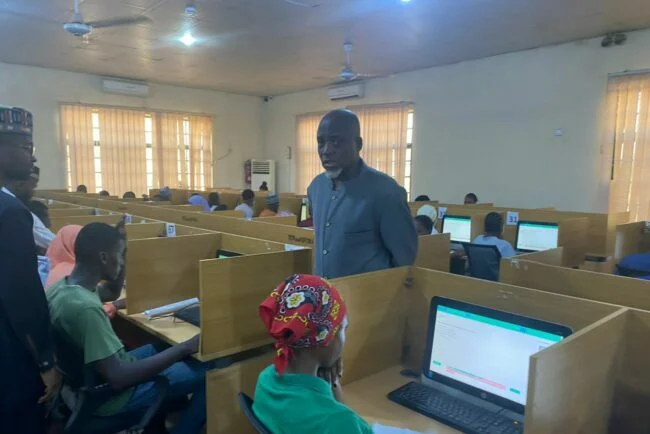
The Joint Admission and Matriculation Board (JAMB) says cases of people having double national identification numbers (NIN) made impersonation possible in the 2024 Unified Tertiary Matriculation Examination (UTME).
The statement from the exam body came after a father and his son were arrested for alleged impersonation in the ongoing UTME.
The father, whose name has not been disclosed, was said to have impersonated his son to help the latter pass the university entrance examination.
Ishaq Oloyede, registrar of the Joint Admission and Matriculation Board (JAMB), confirmed the development in an interview on Wednesday.
Oloyede inspected the Kaduna State University (KASU) Computer Based Test (CBT) centre after which he spoke to the press.
He said it is unfortunate that some parents have descended so low in morals to the extent of resorting to such shameful acts.
“Two of them are now in custody. I can’t understand what the father will tell his son when they are locked in the same cell,” Oloyede said.
Oloyede said the 2024 examination recorded huge success, except for a few cases of impersonation.
He said impersonation became possible because some people now have multiple NINs.
“For those who engage in cheating, they should know that it does not pay. The technology is helping us to check that. Across the country, most of the problem we have is impersonation,” he said.
“For instance now, we say we have NIN. We now have cases of people with two NINs. That has defeated the purpose of identity verification. We will take that up with NIMC; that there are people who have two NIN.”
Oloyede said a total of 1.94 million candidates sat for the 2024 UTME.
He added that those who have missed the exam for reasons not caused by JAMB should forget about it.
The registrar said the board cannot spend millions to reorganise a session for candidates who missed it due to their recklessness.
“Most of those candidates who missed the UTME are students from hostels who were made to register through schools because of the money the schools want to collect from the parents in the name of JAMB, They would now put 30 students in one bus,” he said.
“They will now be dropping them in different locations. By they get to the last student’s centre, he is already late for the exam. You will now see the principal writing to me. What business do I have with a school?
“Even a religious body wrote to me that ‘the following 100 candidates, I want them to write their exams on a particular day of the examination’. They were even deciding for me the school to post the candidates. How is that possible?”
Education
Haruna Dlakwa appointed acting VC of Borno State University
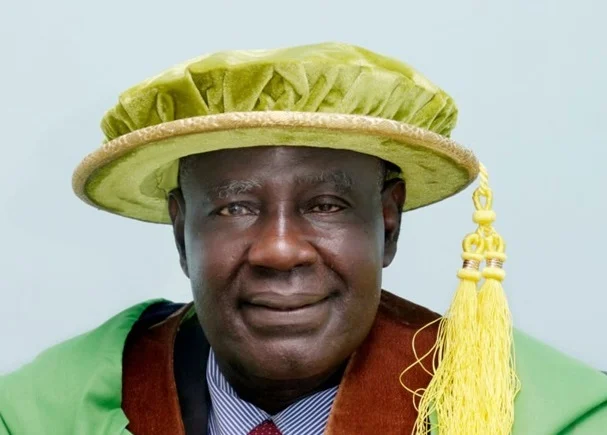
Babagana Zulum, the Borno governor, has approved the appointment of Haruna Dlakwa as the acting vice-chancellor (VC) of Borno State University in Maiduguri.
Bukar Tijani, secretary to the state government, confirmed Dlakwa’s appointment in a statement on Wednesday.
Tijani said the appointment followed the recommendation of the university’s governing council at its 10th meeting on April 15.
‘’Zulum extends warm congratulations to Dlakwa and expects the best until the substantive Vice-Chancellor is appointed for the university,’’ he said.
Until this appointment, Dlakwa was the deputy vice-chancellor of academics at the university.
Borno State University was only established in 2016. It has five faculties — including Sciences, Management, Arts, Social Science and Education — with over 20 departments.
The pioneer vice chancellor of the university was Umar Kyari Sandabe.
In June 2021, the university’s senate building was inaugurated by Muhammadu Buhari, former president of Nigeria.
Education
LAUTECH introduces Mass Communication, five other degree programmes

The acting Vice Chancellor of Ladoke Akintola University of Technology, Ogbomoso, Oyo State, Prof Razaq Kalilu, has announced the introduction of an additional six new degree programmes for the institution.
Kalilu made this known while addressing the congregation at the grand finale of the 16th convocation ceremony of the university, held inside the Great Hall of the institution in Ogbomoso on Tuesday.
He stressed that the academic outlook of the institution was rapidly changing in its bid to fulfil the mandate of the university and the vision of its Visitor, Governor Seyi Makinde.
The VC said, “A year ago, the university established the Faculty of Arts and Social Sciences with four academic programmes. This year, we have introduced six additional new degree programmes into that Faculty namely Psychology, Mass Communication, Linguistics, Yoruba, Theatre Arts, and Political Science. A Faculty of Law has also been established to run a degree programme in law.
“All the seven newly introduced programmes have recently gone through Resource Verification, in March this year towards the National Universities Commission’s approval. We hope to admit students for these programmes in this current academic session as soon as we receive the clearance from the NUC.” He stated.
In his address, the Pro-Chancellor and Chairman, Governing Council of the institution, Prof Ayodeji Omole charged the graduands to be good ambassadors for the university.
“As you receive your degrees, remember that you are not just graduates of LAUTECH, but ambassadors of knowledge, integrity, excellence, service and progress, all that your university stands for. Carry the torch of learning with pride and let your actions speak volumes about the calibre of education you have received.” Omole advised.
-

 Business1 week ago
Business1 week agoX will start charging new users to post, says Elon Musk
-

 Entertainment1 week ago
Entertainment1 week agoJUST IN: Cubana Chief Priest pleads not guilty to naira abuse charge
-
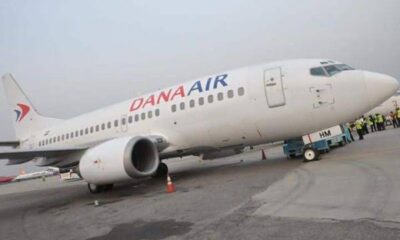
 News2 days ago
News2 days agoFAAN reopens Lagos airport runway after Dana Air incident
-
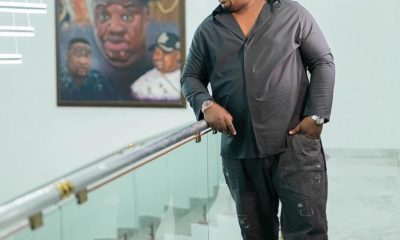
 Entertainment1 week ago
Entertainment1 week agoCubana Chief Priest arrives court for naira abuse trial
-
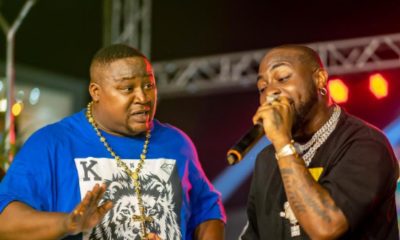
 Celebrities1 week ago
Celebrities1 week ago‘Not see you for 6 months, impossible’ — Davido reacts to Cubana Chief Priest’s bail
-

 Business7 days ago
Business7 days agoElon Musk threatens to suspend X accounts doing engagement farming
-

 Celebrities1 week ago
Celebrities1 week agoKai Cenat threatens to sue OnlyFans model, Layla Red who leaked their chats
-

 World1 week ago
World1 week agoDubai international airport cancels flights as flood ravages runway, UAE

